I love Don DeLillo’s books, his prose, his imagination, so when I found End Zone, an unread DeLillo, in a secondhand shop in Seoul, I was most pleased. Sadly it doesn’t reach the heights of his greatest works. It’s well-written, and the interplay of American sports, military culture, and US racial problems is cleverly done, but the main character, Gary, narrates things in such a lackadaisical sardonic tone that it’s distancing. While it was intellectually stimulating, I never really got into the story in an emotional way. By the end I couldn’t really care all that much what happened, I was just curious to see how he wrapped it all up (he didn’t really).
As you know by now, I love Warner, and I love the Darkland Tales series from Birlinn (which includes Hex by Jenni Fagan and Rizzio by Denise Mina) so putting the two together is catnip for me. The idea behind the Darkland series is contemporary Scottish writers producing novellas about aspects of Scottish history, and Warner takes on the escape of Bonnie Prince Charlie after the Battle of Culloden. Stylistically, this is very, very different from anything Warner has done before, but my god I hope he does something like this again. The prose is exquisite, the minimalist plot, the intense focus on character, and—as always with Warner—the humour is just perfect. Darkland is a stroke of genius, and one I wish I could get in on. I have my pitch ready, Birlinn! The next installment is slated for this autumn, Columba’s Bones by David Greig. Can. Not. Wait.
One Hundred Shadows by Hwang Jungeun (translated by Jung Yewon) is another book I picked up in Seoul. It’s brilliant, but quite difficult to describe. Ostensibly set in an electronics market in Seoul, following Eungyo and her friendship with Mujae, it is variously described on the back as experimental, fantastical, and even as science fiction. In the introduction, Han Kang says it has elements of fantasy and that’s probably the most accurate. In a sense it’s the same kind of hyperrealism that writers like Hiroko Oyamada and Han Kang excel in: focusing so completely on the minutiae of everyday existence that a kind of defamiliarisation takes place and everything becomes a little surreal. The fantasy element here is the idea that your shadow is a malevolent force that can rise up. Characters are haunted by their shadows, sometimes even hunted by them. Whether it’s a metaphor for depression, for existential dread, for regrets, for whatever you want to read into it, for the characters it’s a very real threat, and this dread permeates the pages of this short novel.
Around the middle of the month, a friend of mine, the poet Larissa Reid told me that she was planning to spend the weekend immersed in poetry to detach from the stresses of the present, and I thought this was such a good idea that I did the same, beginning with this wonderful collection. I bought Requisite by US poet Tanya Holtland under sad circumstances: the publisher, Platypus, tweeted that they were being forced to close down and were clearing out their stock. I hadn’t heard of Platypus before, so it was bad luck that it was this situation that brought them to my attention. I ordered a bunch of stuff from their list, mostly poetry collections. Requisite is simply brilliant. This is the kind of poetry that really gets me excited, and a style I work towards myself. Rather than try to describe it, here’s a page I will be returning to again and again:
Another collection from Platypus was Ghost Still Walking by Do Nguyen Mai, a Vietnamese-American poet. It was very different from Holtland’s, more lyrical, flowing, some of the poems more like prayers. Again, I’ll let their writing talk for itself:
And then I started Nights of Plague by Orhan Pamuk which is 704 pages in a bulky, heavy hardback. That’s going to straddle at least May and June. Stay tuned.




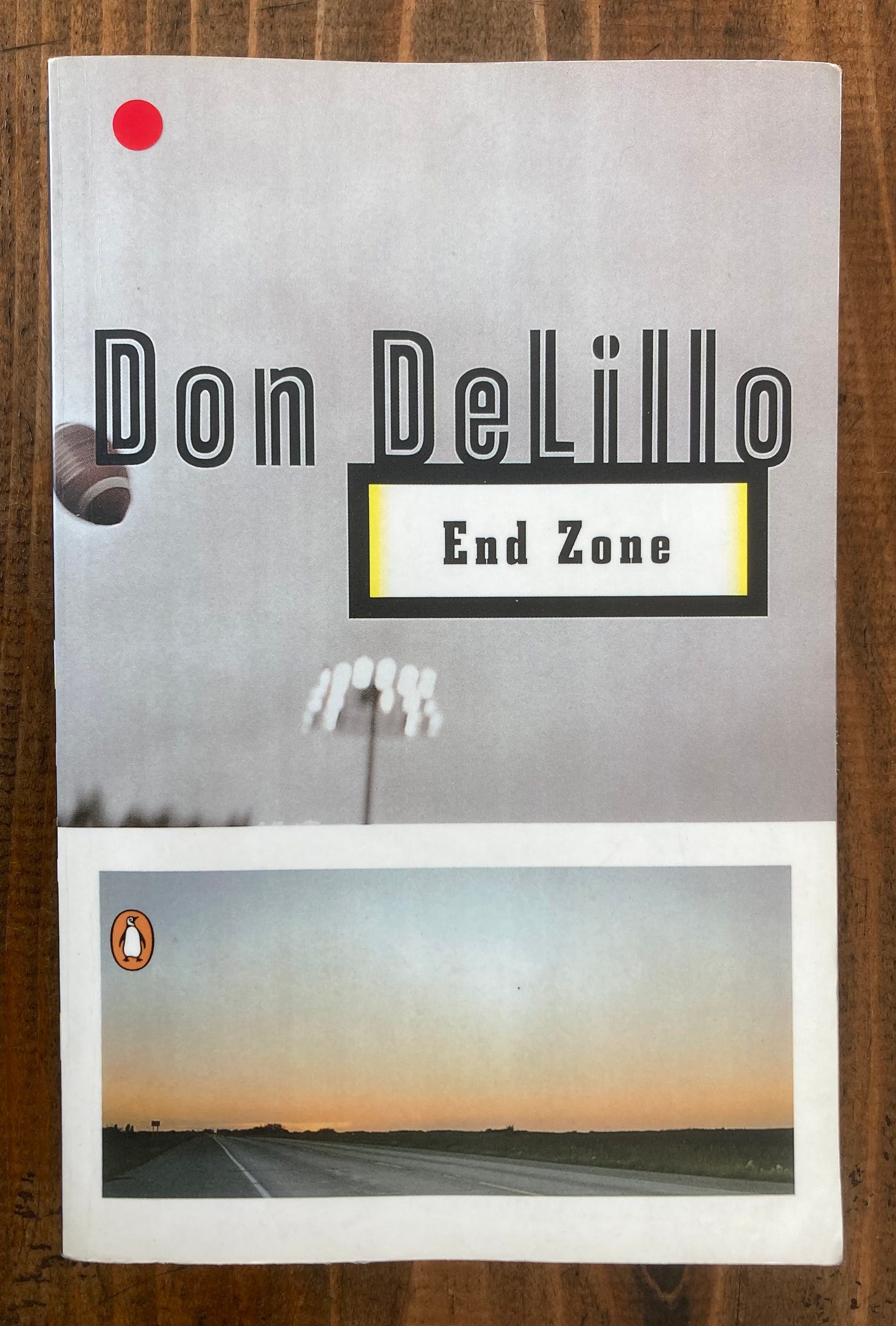
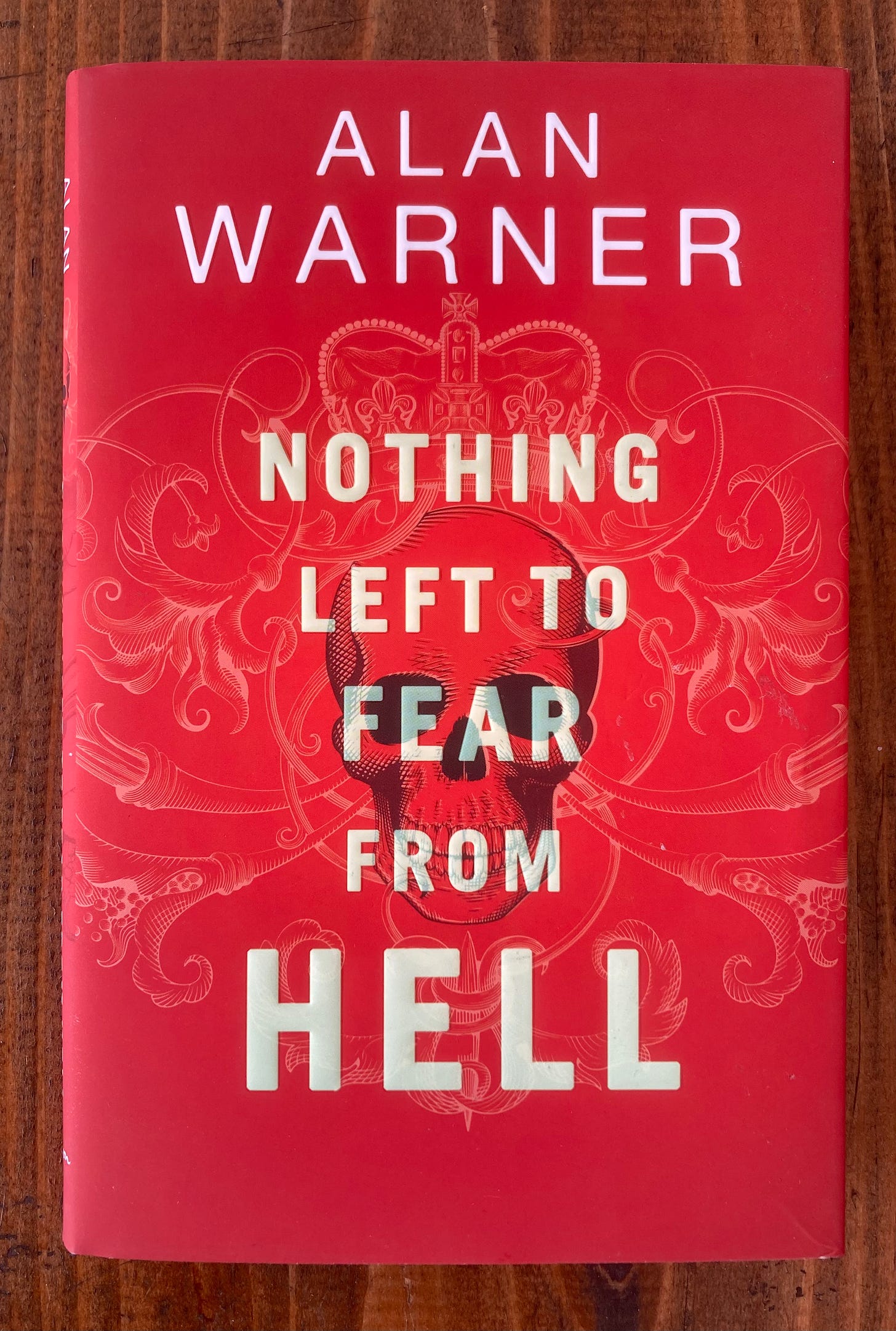
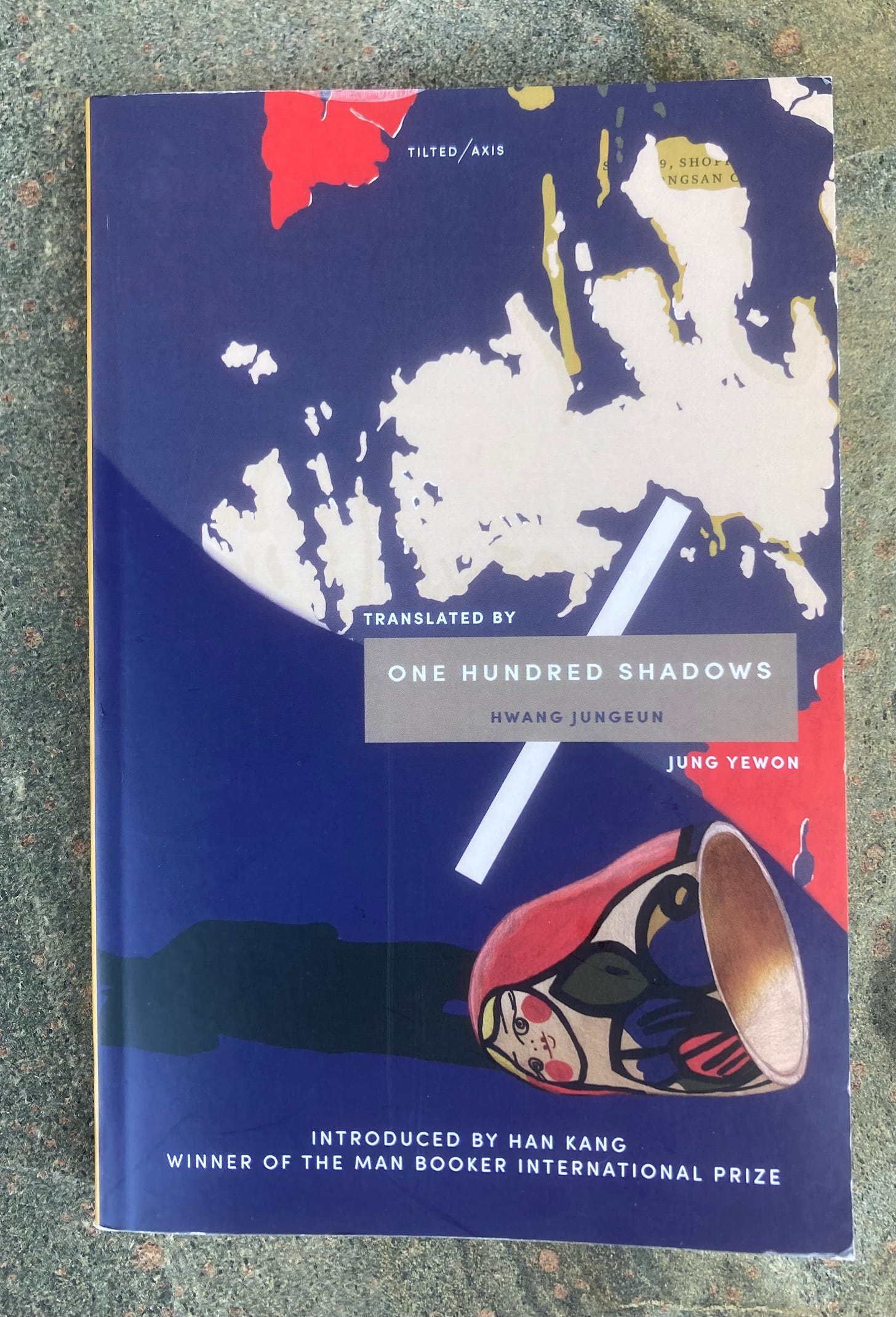
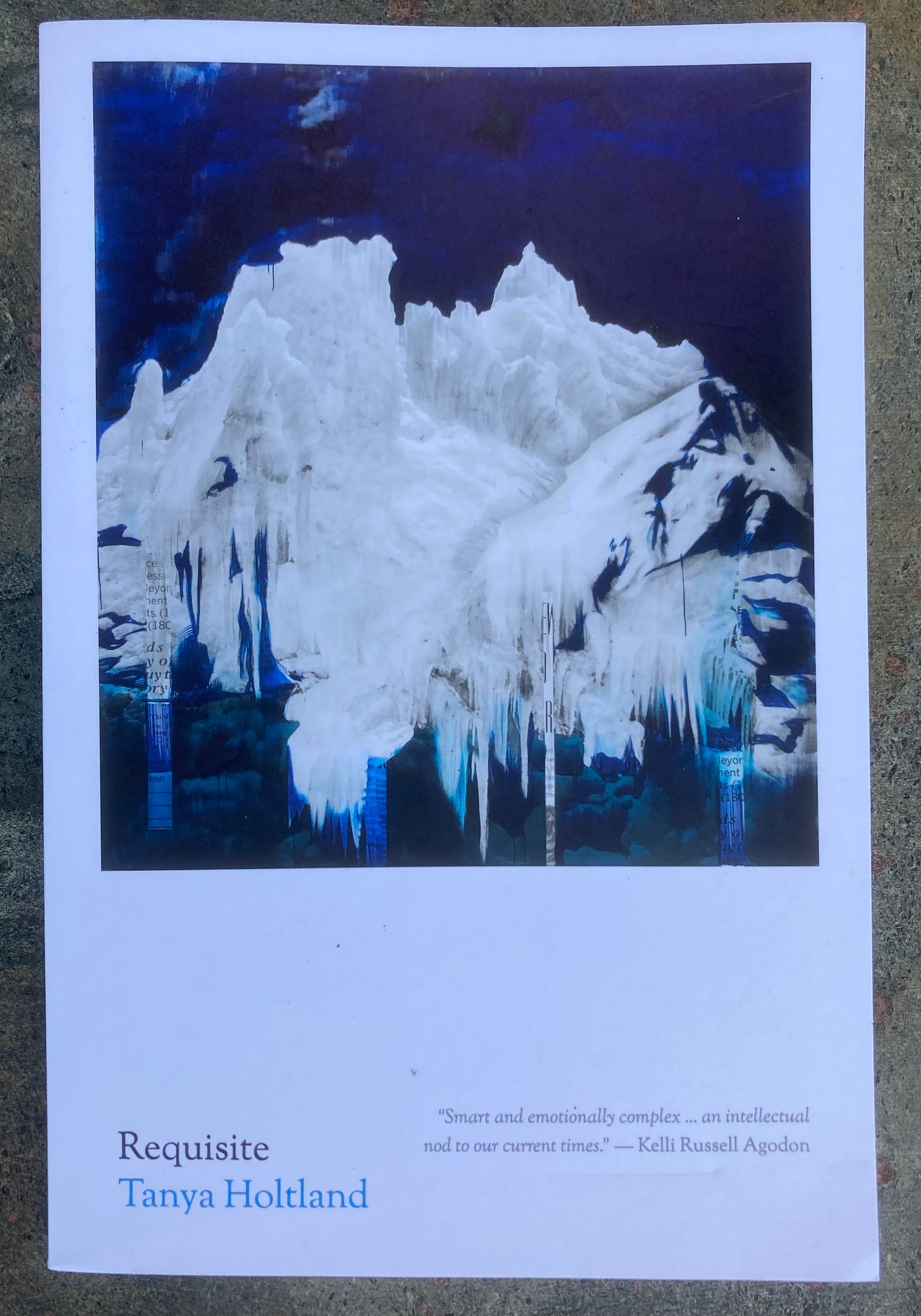
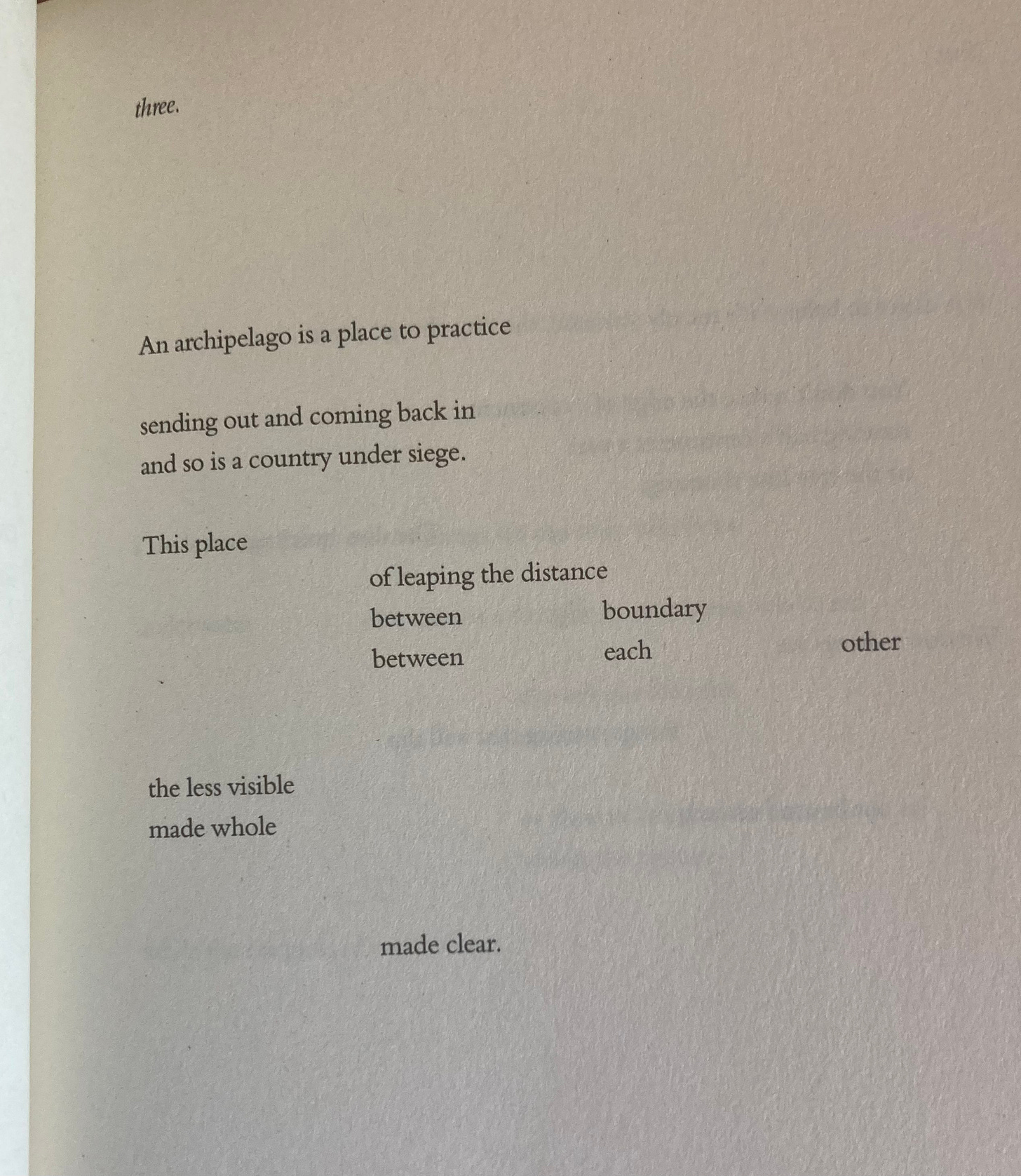
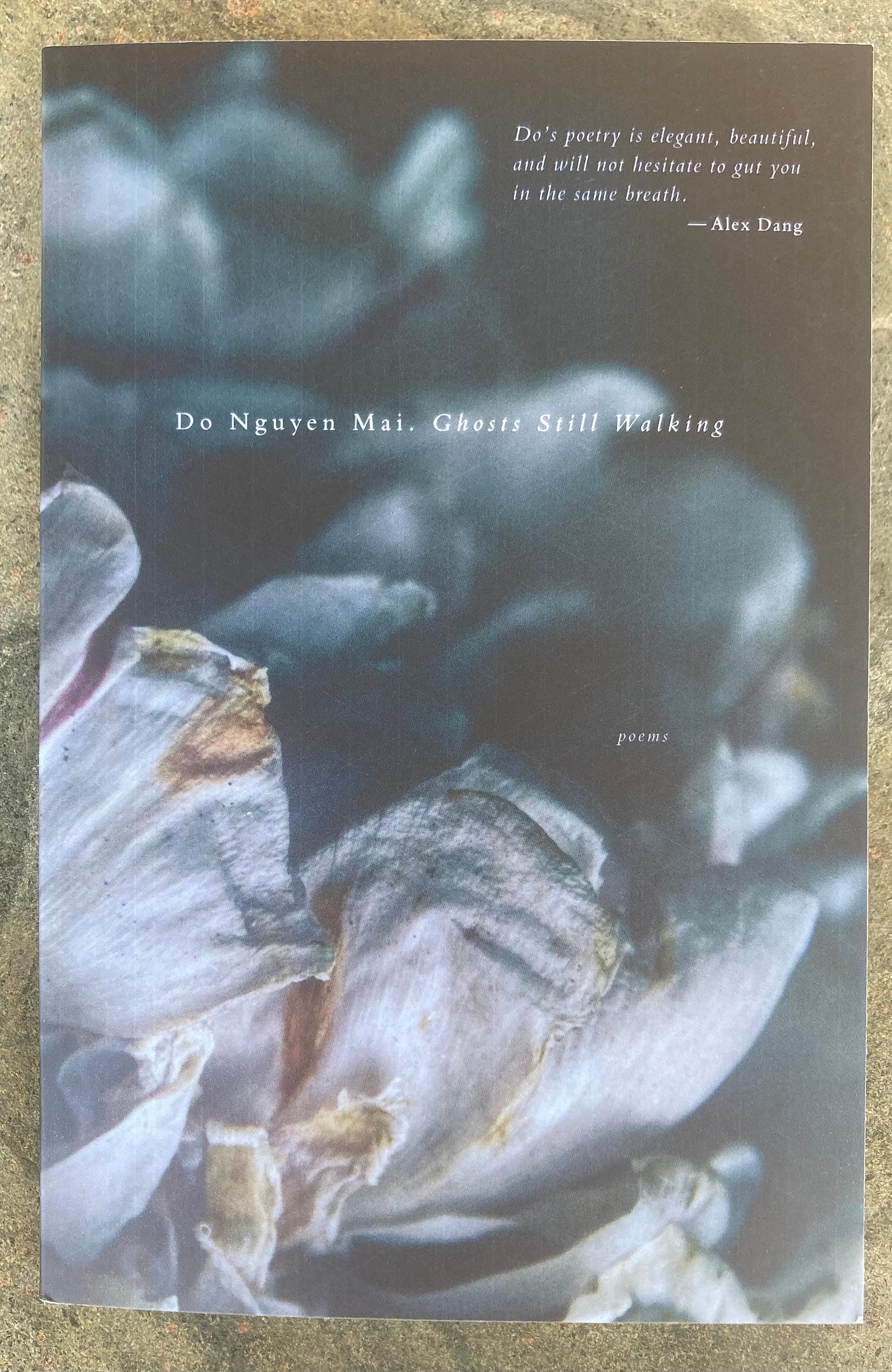
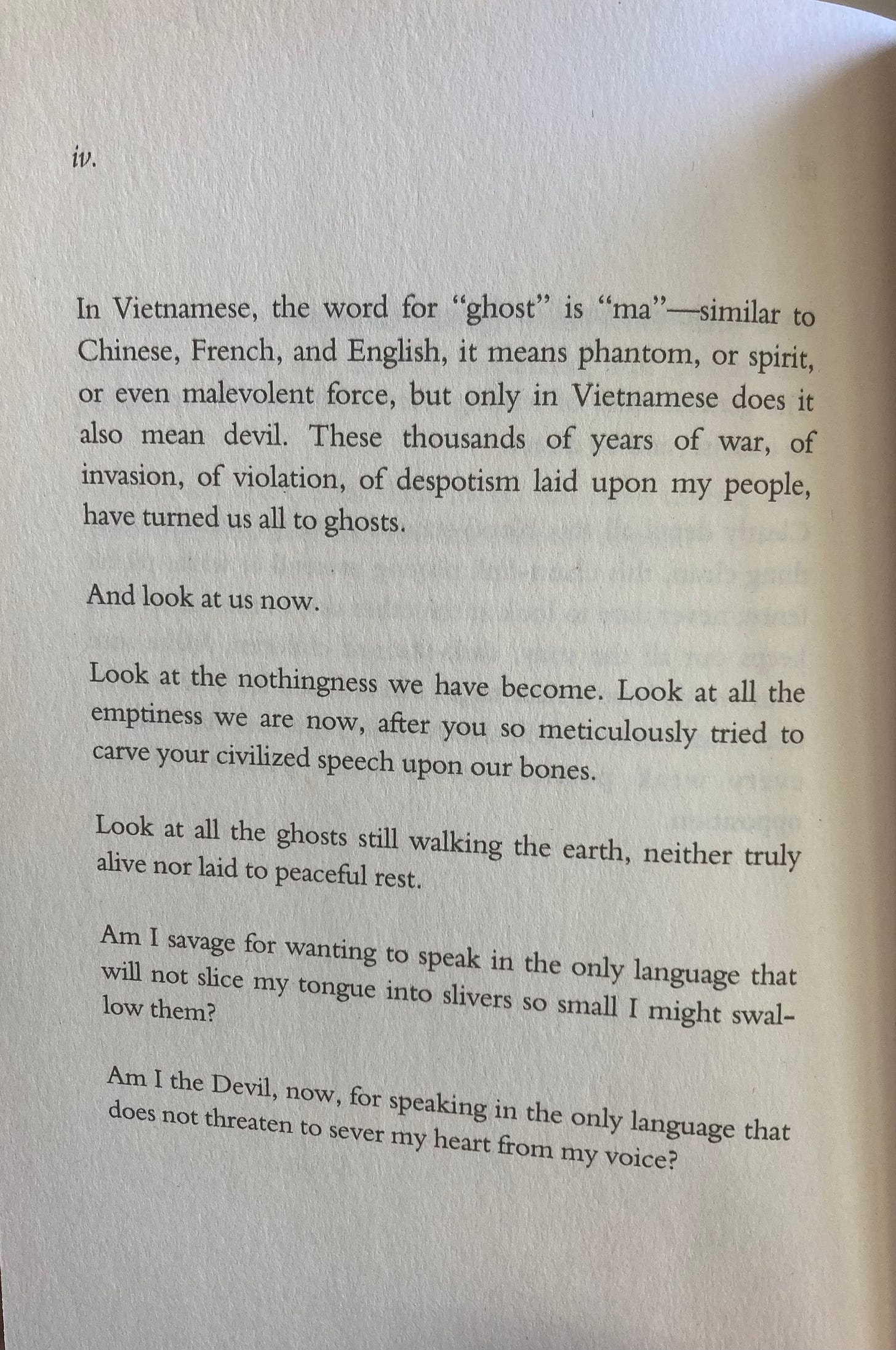
I started the Pamuk but paused... have you read Yanagihara's To Paradise?